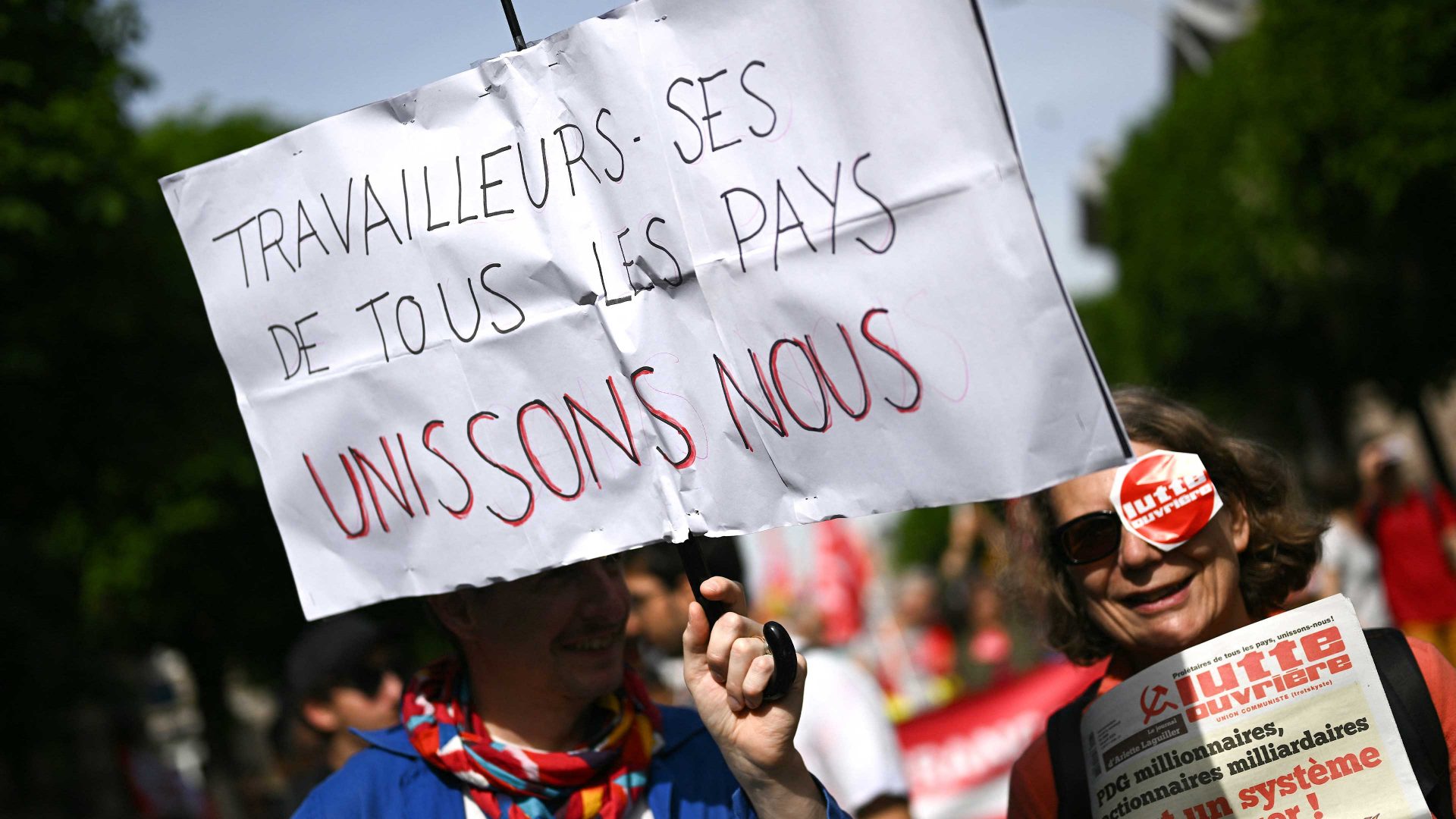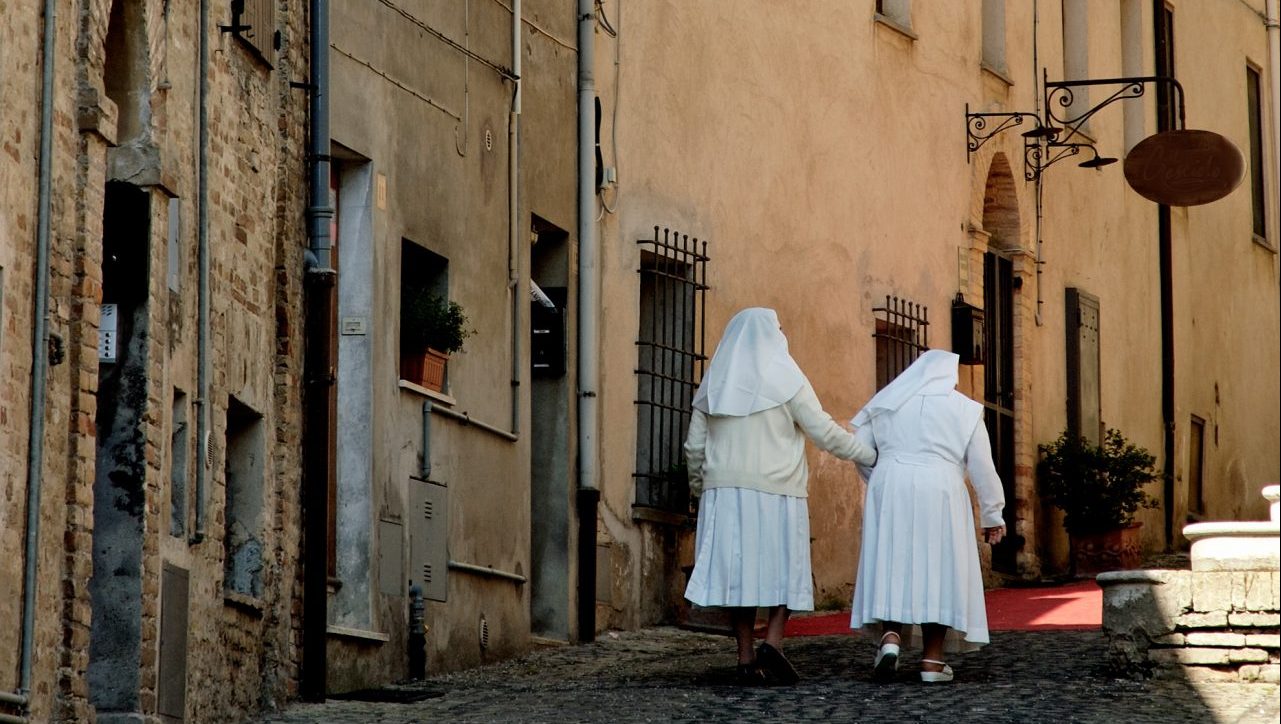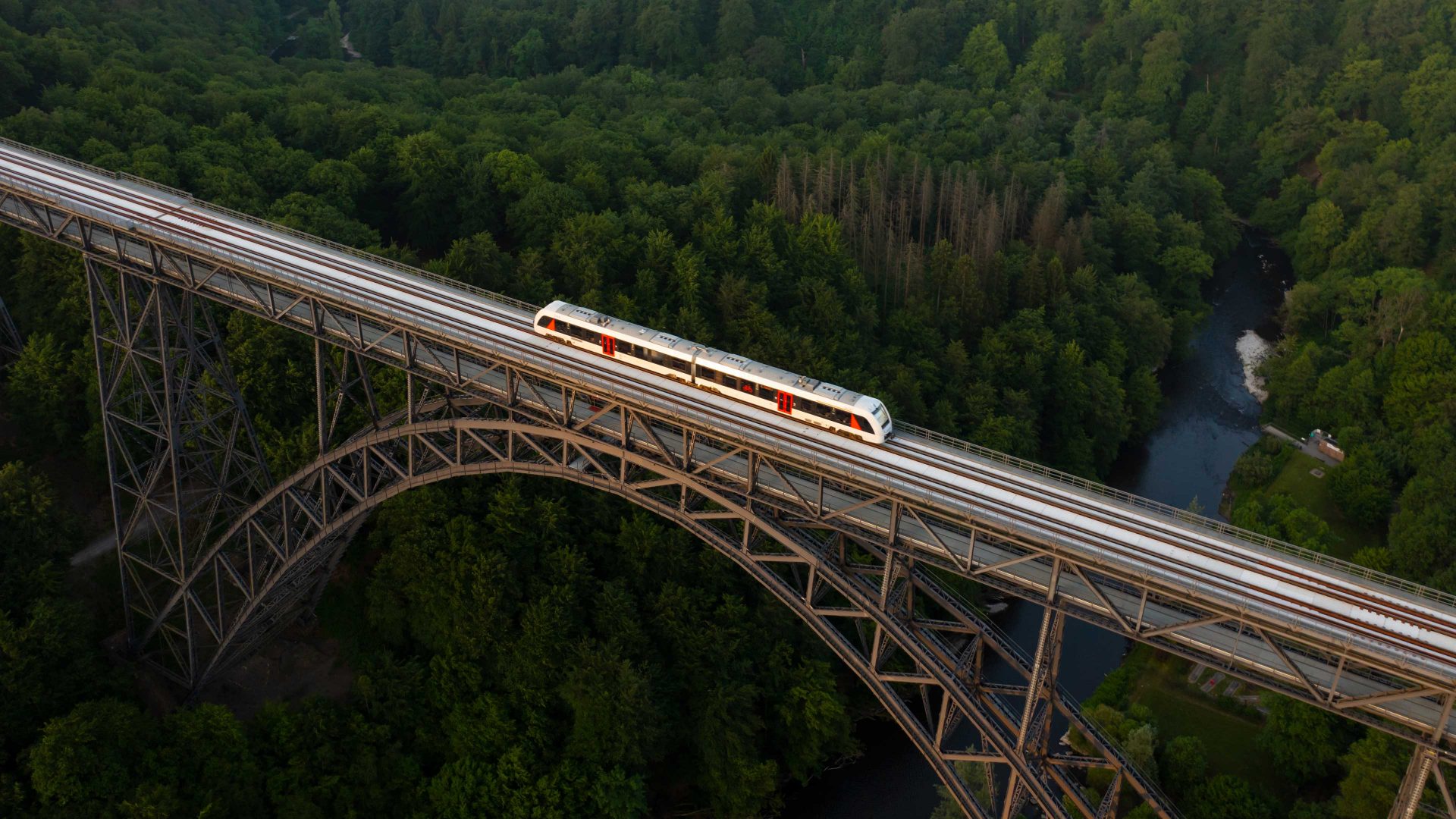Every May 1, the slogan “Peace, Labour, May” resonates in my Russian mind – a Soviet legacy ingrained in our collective memory. While the word “peace” has been deliberately erased from customary Labour Day posters in today’s Russia, here in France, it remains an integral part of the annual workers’ march.
Among their primary demands is an urgent call for a ceasefire in Gaza. “Can we live in dignity in the shadow of a genocide?” reads a banner carried by two men at the head of the procession bearing Palestinian flags, in Rouen, Normandy.
Despite the drizzling rain, several hundred demonstrators march along Rue Jeanne d’Arc. “Solidarity with the exploited worldwide!” yells the crowd, immersing me once again in the imagery of the USSR. With a flagpole on his shoulder, a teenager proudly carries a banner reading “Young Socialists”. His companions appear to be in their 60s, much like most people in the procession.
“There is a whole generation that lived through the end of the Soviet regime and shares a strong belief that capitalism has triumphed worldwide, leaving no room for alternatives,” says Yohann Bis, 27, a member of The Committee for a Workers’ International, a global association of Trotskyist political parties. “This is why at these protests you usually see either old militants or very young people, but very few in between.”
Marie-Hélène Duverger is an old-school activist with a loudspeaker at the heart of the procession. She is also the spokesperson for the New Anticapitalist Party, the successor of a far-left political movement that was popular in the 1970s. “For 135 years, workers have protested and gone on strike to demand better working conditions, higher salaries, and to denounce the unfair capitalist world that exploits us,” she says.
“Still today, the main issue facing French workers is making ends meet. Half the population earns less than minimum wage, while corporate heads amass huge profits. Not only does the government refuse to listen to us, but it also represses all those who oppose its policies, including trade unions, as it did with the gilets jaunes.”
Beside Duverger, behind a banner that reads “For a world without borders and bosses”, stands her fellow party member Mathias Le Corre, 22, whose fears about the future are largely due to the government’s repressive actions.
“You can receive a one-year suspended prison sentence for distributing a brochure in support of the Palestinian people,” he says. “Our prime minister publicly instructs police forces to intervene in universities where students are peacefully protesting. Meanwhile, living conditions are deteriorating and the far-right is gaining momentum – all of this is extremely worrying.”
Several people carry similar signs. One holds a placard saying: “My name is Cheick, I am 24 years old, and I come from Mali. As a minor, Child Welfare took care of me. I earned my certificate of professional competence and became a baker. You don’t see me because every day I am standing at the oven making your bread. I have many friends, a girlfriend, and plenty of plans for the future – but still no residence permit. WHY?”
Walking backwards, a man sketches a group of four young black men carrying a huge banner that reads “Here we studied, here we work, here we live, and here we will stay”.
As I approach them for a comment, they avert their eyes, visibly distressed. “The words fail me,” says one of them, walking away.
Sylvie Blanckaert, representative of the confederation of French trade unions, CGT, acknowledges that this year’s protest is much smaller than in 2023. After the controversial pension reform passed despite last year’s nationwide protests, which mobilised hundreds of thousands, she felt a sense of resignation.
“There are always ups and downs,” she says. “But we’re here to give people a boost – to regroup and keep going.”
Svetlana Lazareva is an independent multilingual journalist based in Paris




